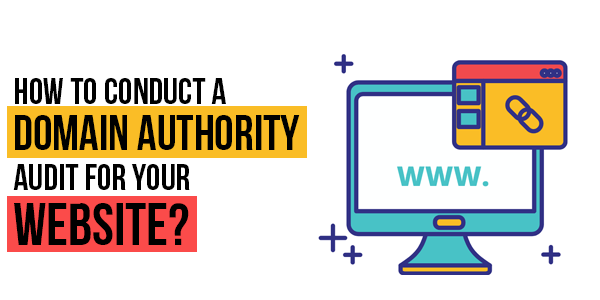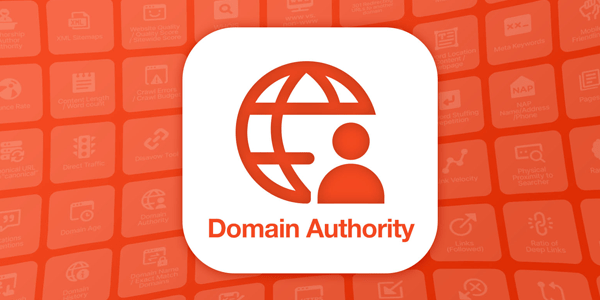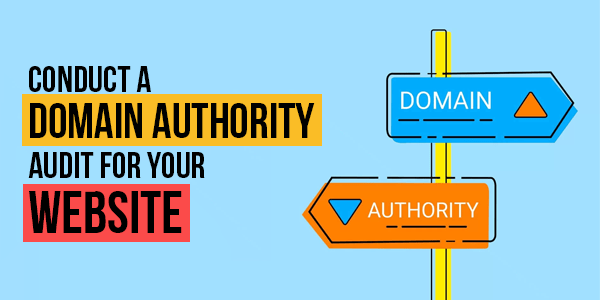
If you want to audit your website properly, you need to know what to pay attention to. So, join us as we go over how to conduct a domain authority audit for your website!
Table of Contents
Understanding Domain Authority:
Understanding Domain Authority is crucial for any website owner or digital marketer aiming to improve their online presence. Domain Authority is a metric developed by Moz that predicts a website’s search engine ranking potential. Essentially, the higher the Domain Authority, the more likely a website is to rank higher in search engine results. However, it’s important to note that Domain Authority is a comparative metric. It should be used to evaluate your website against competitors rather than as an absolute indicator of search rankings. By understanding Domain Authority, you gain insights into your website’s strengths and weaknesses, enabling you to develop effective SEO strategies and identify opportunities for improvement.
Setting Goals And Objectives:
When it comes to preparing to conduct a Domain Authority audit for your website, setting clear goals and objectives is vital. These goals act as a roadmap, guiding your efforts toward success. Start by identifying what you want to achieve with your SEO strategy. Do you want to increase organic traffic, improve search engine rankings, enhance user engagement, or even optimize video SEO? Once you have a clear objective in mind, break it down into specific and measurable goals. For example, you might aim to increase organic traffic by 20% within six months. These goals help you stay focused and provide a benchmark for tracking progress. It’s important to ensure your goals are realistic and achievable, considering factors like competition and resources.
Why Go To The Effort Of Assessing The Current Domain Authority:
In order to learn how to manage your website effectively, it’s essential to assess its current Domain Authority. Domain Authority is a key metric that indicates the overall strength and credibility of your website in the eyes of search engines. So, by evaluating your Domain Authority, you can gain valuable insights into how well your website performs in search results and identify areas for improvement.
Conducting A Competitive Analysis:
A competitive analysis is crucial when performing a Domain Authority audit for your website. By analyzing your competitors’ websites, you can gain valuable insights and identify opportunities to outperform them in search engine rankings. Start by identifying your main competitors in your niche. Then, analyze their websites to understand their strengths and weaknesses. Pay attention to their Domain Authority, backlink profiles, content quality, and overall user experience. By comparing your website’s performance against your competitors, you can identify areas where you may fall behind and find ways to improve. Look for gaps in their content strategy or untapped keywords that you can target. Furthermore, assess their social media presence and engagement to gain insights into their audience reach. Finally, keep an eye on their backlink sources to identify potential opportunities for building high-quality backlinks.
Evaluating On-Page SEO Factors::
Evaluating on-page SEO factors is another thing to pay attention to when you conduct a Domain Authority audit for your website. On-page SEO means optimizing individual web pages to improve their visibility in search results. So, start by assessing your website’s structure and navigation, ensuring it is user-friendly and easy to navigate. Next, analyze your content for quality and relevance. Ensure your content is well-written, informative, and aligned with relevant keywords. Optimizing meta tags and headings is also important to provide search engines with clear information about your content. Pay attention to title tags, meta descriptions, and header tags to ensure they are optimized and accurately reflect your content. Finally, optimizing images with descriptive alt tags and compressing them for faster loading speeds can improve your website’s overall performance.
Reviewing Off-Page SEO Factors:
Reviewing off-page SEO factors is crucial for improving your website’s visibility and authority. Off-page SEO is all the actions you take outside of your website to impact its search engine rankings. Begin by examining your backlink profile, ensuring that you have high-quality and relevant links pointing to your site. The quality and quantity of backlinks greatly influence your website’s authority and credibility. Evaluate your social media presence and engagement, too, as a strong social media presence can enhance your brand visibility and attract more traffic. Engaging with your audience and encouraging social sharing can also improve off-page SEO. Additionally, consider building relationships with influencers or industry leaders who can endorse your website and provide valuable backlinks. Online mentions and reviews of your brand also impact off-page SEO, so monitor and manage your online reputation.
Analyzing Technical SEO Factors:
Analyzing technical SEO factors is essential when conducting a Domain Authority audit for your website. Start by assessing your website’s speed and performance, as a slow-loading site can negatively impact user experience and search rankings. So, if needed, work to optimize your website’s code, compress images, and leverage caching techniques to improve loading times. Next, check if your website is mobile-friendly and responsive, as search engines prioritize mobile-friendly sites in mobile search results. Evaluate your site architecture and URL structure, ensuring they are organized and user-friendly. Implement proper header tags (H1, H2, etc.) and optimize your internal linking structure for easier navigation. Additionally, thoroughly review your website’s XML sitemap, ensuring all pages are included and properly indexed by search engines. Finally, regularly monitor and fix broken links, as they can harm user experience and SEO.
Developing An Action Plan:
Developing an action plan is essential for effective SEO implementation and achieving your website’s goals. Start by prioritizing the areas that require improvement based on what you find when you conduct a Domain Authority audit for your website. You can use the data to determine the most impactful changes to yield the best results. Then, set realistic timelines and milestones to keep your optimization efforts on track. Furthermore, assign responsibilities to team members or allocate resources to ensure accountability. Break down the tasks into actionable steps, making them easier to manage and execute. Finally, consider the necessary resources, tools, and budget needed to implement the action plan effectively.
Implementing Changes And Monitoring Progress:
Implementing changes and monitoring progress is necessary to ensure your plan succeeds. Once you have identified the necessary changes based on your audit, effectively executing them is crucial. So, monitor the implementation closely to ensure the changes are accurately reflected on your website. Additionally, keep track of the progress by analyzing key metrics such as organic traffic, rankings, and user engagement. Stay vigilant about any fluctuations or patterns that may occur due to the changes, such as the impact of voice search on SEO. Finally, regularly review your strategies and adjust them accordingly to align with emerging trends and algorithm updates.
Making The Most Of Your Audit:
Knowing how to conduct a domain authority audit for your website will make the process a lot easier and more effective. So, as long as you take the time to do it right, we know your website will only improve.

 About the Author:
About the Author:












Be the first to write a comment.